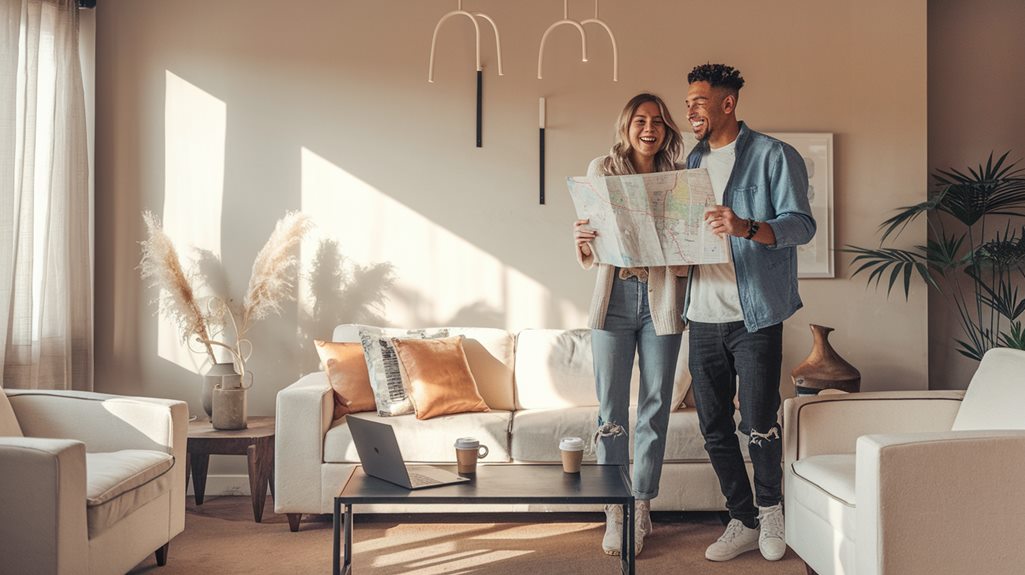Buying your first home is a big deal! Here are some simple steps to help you get started.
First, think about your money. Look at how much you earn, what you spend, and check your credit score. If there are mistakes on your report, fix them.
Next, it's a good idea to get pre-approved for a mortgage. This shows sellers you are serious and ready to buy.
Then, learn about different neighborhoods. Check out the parks, schools, and how far it is to work or school.
It's also smart to find a real estate agent who understands what you want. They can help you find the right home and negotiate a good price.
Before you buy a house, make sure to have it inspected. This way, you can find out if there are any problems that need fixing.
There's a lot to learn, but soon you'll be ready for this exciting journey!
Ready to start building equity in your own Michigan home? Get your personalized home loan quote today.
Assess Your Financial Situation

Before you start looking for a new home, it's very important to check your money situation.
First, take a good look at your budget. Can you afford a mortgage? If you cut back on some of your monthly spending, you might've more money for your future home.
Next, think about your credit score. This is a key part of getting a good loan. Go ahead and check your credit report for any mistakes that might hurt your score.
If you can make your score better, it can help you get a loan with lower interest rates. A good credit score shows lenders that you're responsible.
Michigan residents, unlock the door to your new home. Request your home loan quote from Treeside Financial today.
Get Pre-Approved for a Mortgage
Getting pre-approved for a mortgage is a smart step when you want to buy a home. It helps you know how much money you can spend and shows sellers that you're serious about buying.
First, look at different types of mortgages to find one that fits you best. Lenders will check your credit score, which is important for getting a loan and finding out your interest rate. Make sure your credit report is correct and fix any mistakes before you start.
Having a pre-approval letter makes you look good to sellers. It shows them that you can really buy the house.
When you have this letter, you'll feel more sure and excited as you start this big journey of buying a home.
Research Neighborhoods

Now that you have your pre-approval letter, it's time to find a neighborhood that feels just right for you. Look for places with nice parks, stores, and fun activities nearby. These things can make your new home even better and help you meet new friends.
Also, check out local schools. Good schools are important, especially if you have kids or want them in the future. Schools can show that a neighborhood is a good place to live, which can help keep home prices steady.
Think about how long it will take to get to work or school, how safe the area is, and any plans for new buildings or parks in the future.
Talking to people who live in the neighborhood can give you helpful tips and make you feel sure about your choice.
Hire a Qualified Real Estate Agent
Buying a home can feel really big and confusing, but having a good real estate agent can help a lot. You need someone who knows what they're doing and understands the market.
A great agent will listen to what you want and help you find a home that feels just right for you. When it's time to make an offer, they'll use their skills to help you get the best price.
Choosing an agent who cares about what you want will make you feel good and ready throughout the journey.
Conduct a Thorough Home Inspection

Looking at a house carefully is very important before you buy it. A home inspection checklist helps you find problems that you might not see right away. This helps protect your money and gives you peace of mind, making sure you made a smart choice.
| Area | Common Issues |
|---|---|
| Foundation | Cracks, water damage |
| Roof | Missing shingles, leaks |
| Plumbing | Leaky pipes, low water pressure |
| Electrical System | Faulty wiring, outdated panels |
With this checklist, you can feel good about checking the house. If you have questions or need help, don't be afraid to ask experts. Your new home should be a happy place, not a place where you spend too much money fixing things. So take your time and make sure everything is in good shape.







